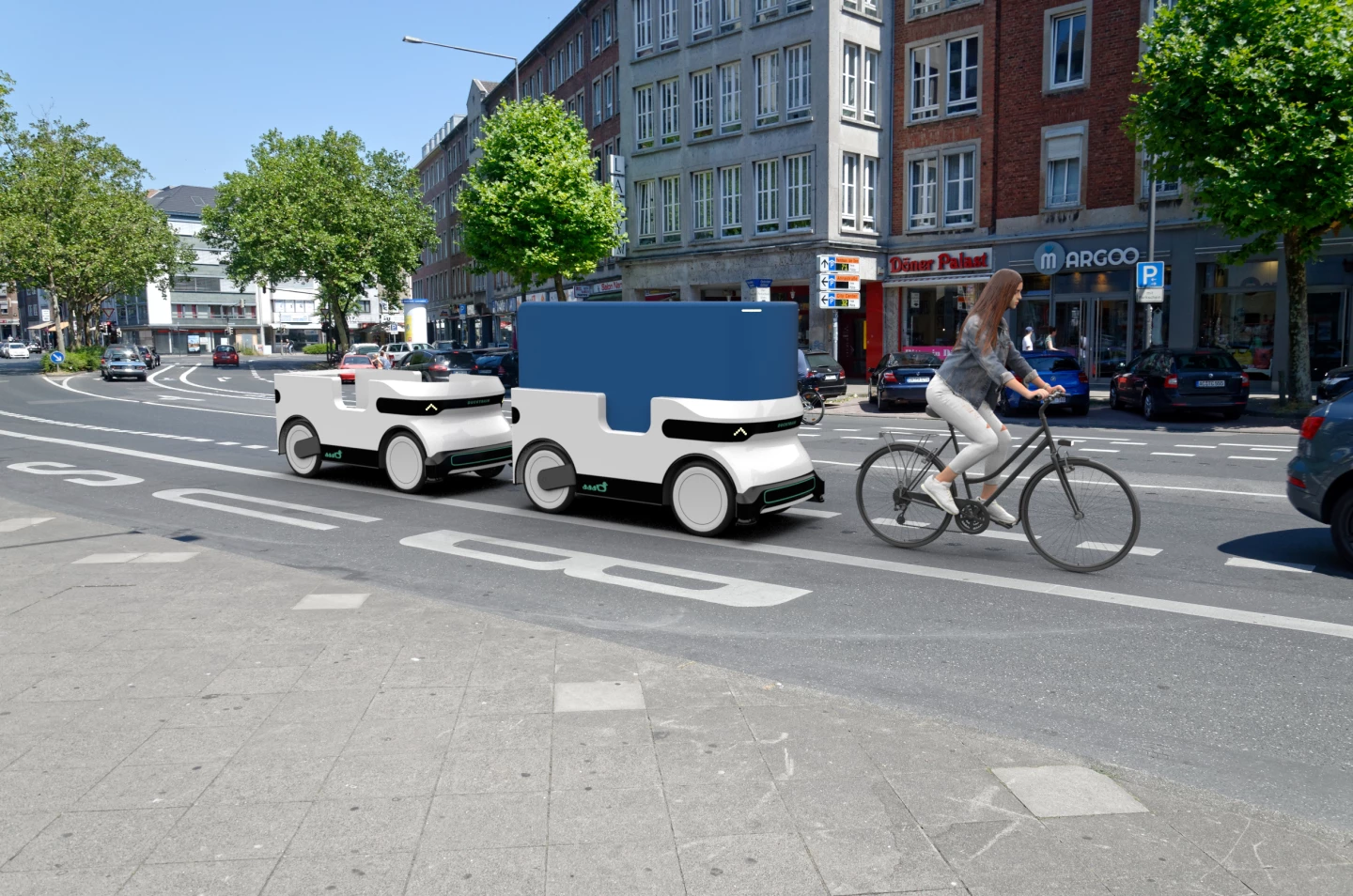Cargo bicycles may indeed be a clean, green option for making urban deliveries, but they can only carry moderately sized loads. The Trailerduck lets bikes haul much more cargo, by matching its power and steering to that of the bike that's towing it – and a subsequent system may require no bike at all.
Manufactured by German startup DroidDrive, the Trailerduck is an electric-motorized four-wheeled cargo trailer that is connected to a bicycle via a system-specific drawbar. That bar contains sensors that detect the speed of the bike, along with the direction in which it's turning. The trailer responds by accelerating, braking and turning accordingly.
As a result, although the cyclist is guiding the Trailerduck, they don't have to work at actually pulling its weight along behind them. That's an important consideration, given the fact that the trailer can handle a payload of up to 300 kg (661 lb). It's just 1 meter wide (3.3 ft), though, so it can travel both on main roadways and in bike lanes.
It's essentially a bigger, stronger equivalent of some consumer-oriented powered bike trailers we've seen, such as the Biomega Ein.
DroidDrive is currently taking preorders for the Trailerduck, with shipping of the first units expected to start in the fourth quarter of next year. They will also be available to rent, for €499 (about US$587) per month.

The fun doesn't stop there, though, as the company is also developing what it calls the Ducktrain system. This consists of a platoon of up to five Duck electric cargo vehicles (quite similar to the Trailerduck), which use LiDAR technology to wirelessly track and follow a lead human-driven vehicle such as a cargo bike. This means that although the lead vehicle and the Ducks form a train, none of them are physically linked to one another.
What's more, it is hoped that within about three years, the Ducks will be able to travel at least part of their delivery routes autonomously, without the need for a guiding vehicle in front. According to the company, the Ducks are already physically ready to perform this function, and would simply require a software update.
Source: Trailerduck







